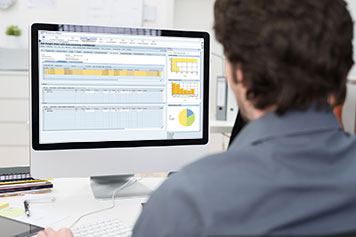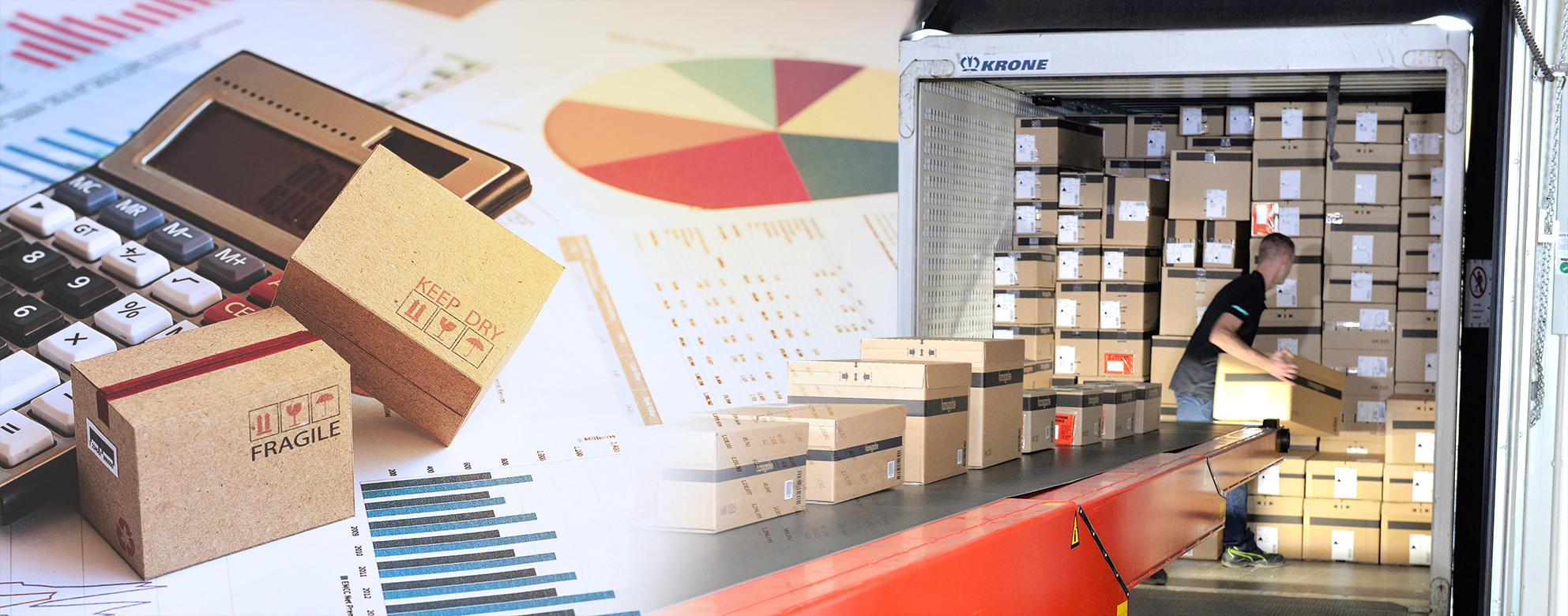Cost monitoring / optimization:
- Complex tariff structures
- Quotas
- Prime costs
- Cost determination and actual camparison
- Cost-based planning
- Audit
- Credit creation
- Value-added services
Transport cost management – How can costs be monitored and optimized?

Transport costs can also be seen as the Achilles Heels of Transportation Management! To make them more moderate, transparency across the entire transport network is essential. If the processes are IT-supported, it is easy to gain a reliable overview of conditions and all resources at machine and personnel level and to initiate effective transport cost management. However, a distinction should be made here between the prime cost incurred by one's own fleet and carriers' agreements with external service providers.
These tasks are also taken over by the SAP Supply Chain Execution Platform! With the help of SAP Transportation Management (SAP TM) and SAP Extended Warehouse Management (SAP EWM), this solution seamlessly manages all warehouse and transportation logistics.
The potential of automated transportation cost management is considerable:
- Automated determination of transport costs (prime cost, for example own vehicle fleet)
- Contract management (display of carrier agreements including conditions)
- Transportation cost-based planning
- Service provider comparison based on real or expected freight costs
- Quota monitoring and allocation
- Real-time cost reporting as well as cost centre allocation
- Automated audit and generation of credits
Transportation Cost Management with SAP TM and SAP EWM considers all processes involved in storage and transportation. Included here are also special services that are incurred in the course of processing costs incurred, such as value-added services. In addition, surcharges for installation work and / or required post-treatment are taken into account.
The advantages that result from this can best be illustrated with two simplified, exemplary scenarios, as they can take place with a shipper in the outbound area:
Transport processing by specialized service providers
Central to this application is the system-based management and control of freight agreements and services provided externally. Using a corresponding, 9-dimensional application in SAP TM, conditions for defined freight and transport routes can be standardized and automatically compared, allocated and purchased. The calculated monetary expenses are subsequently transferred to SAP ERP.
You can use different distribution keys to allocate these corresponding cost centres. Allocation can be made on a customer and product basis down to the level of single packages. If there are any deviations in the course of transport processing, such as postponed fines, the existing data can be adjusted in real time. As a result, users are automatically supported in the invoice control and it is possible to generate credits also automated.
Transport processing by own vehicle fleet
The most efficient mode of transport is when your own truck is always fully loaded on tour. In order to achieve this, answers to numerous questions must be found: How to best analyse the capacity of your own fleet at the cost level? What options do I have to allocate the monetary expenses adequately to recipients, cost centres and partner companies? And what about additional costs for tolls, customs or even increased amounts that result from unplanned prolonged downtime – for example, during loading and unloading? With the help of SAP TM this is practically automatable! Because the system monitors all costs incurred in all sub-processes, ensures the required breakdown and ensures continuous monitoring in real time.
Function examples
- Cost calculation / simulation
- Real-costing
- Accounting
What functions are available for SAP TM transport cost management?
Users of IT-based, SAP-based transportation cost management benefit from the advantages of standardized monitoring and active control. As a result, process costs incurred during transport can be significantly reduced.
The most important functionalities stored in SAP TM are:
- Administration of freight conditions or temporary agreements
- Tariff/Rates generation using intelligent algorithms
- Determination and calculation of demurrage and possible diesel surcharges
- Specification of freight costs of individual parts of a tour
- Support in service provider selection and contracting
- Monitoring of allocated quotas
- Real-time monitoring of daily transport costs already incurred
- Entry of additional costs of any kind
- Distribution key for the allocation of freight costs to the parties involved
- Generate a solid database for automated auditing and crediting
- Consideration and billing of additional services, such as value-added services or assembly-related work
- Monitoring the cost efficiency of the integrated transport service providers
- Documentation of the respectively given delivery quality and, if necessary, determination of surcharges for underpayments or invoice deductions


